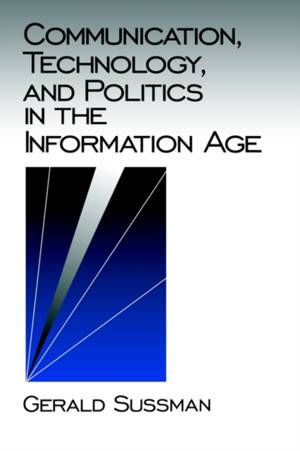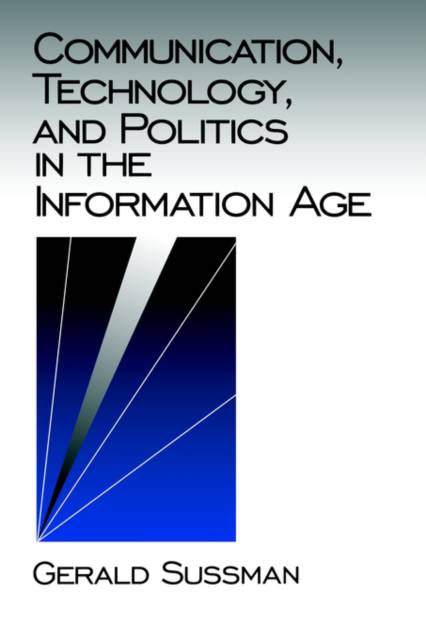
- Afhalen na 1 uur in een winkel met voorraad
- Gratis thuislevering in België vanaf € 30
- Ruim aanbod met 7 miljoen producten
- Afhalen na 1 uur in een winkel met voorraad
- Gratis thuislevering in België vanaf € 30
- Ruim aanbod met 7 miljoen producten
Zoeken
Communication, Technology, and Politics in the Information Age
Gerald Sussman
€ 238,45
+ 476 punten
Uitvoering
Omschrijving
How do politics influence communication technology? What forces shape technological enterprise? How do politics, society, and technology intersect? To answer these questions, author Gerald Sussman looks beyond the techno-functional aspects of product and process and focuses instead on the human agents and institutions involved in the making of information technologies. Sussman begins with a look at theory and then reviews the social history of communication technology. He next examines contemporary issues in the U.S. context, from the diminishing of citizenship and work experiences to the growing use of commercial and political surveillance. In so doing, he reveals to readers "just who the heavy truckers are on the information highway and what that means for the rest of us." The author concludes by examining the global dimension of the information society, pointing out effects on developing countries and alternatives to the hegemonic tendencies of the U.S. and world economies. Through his carefully detailed and critical analysis, Sussman demystifies the political and social inner workings of communication technologies and guides readers to an understanding of the real meaning of the information revolution. Ideal as a main text or as supplement for courses in American politics, contemporary political issues, the political economy of communication, and public policy, Communication, Technology, and Politics in the Information Age will be an invaluable resource to students and academics in the fields of communication, political science, sociology, and mass communication.
Specificaties
Betrokkenen
- Auteur(s):
- Uitgeverij:
Inhoud
- Aantal bladzijden:
- 336
- Taal:
- Engels
- Reeks:
- Reeksnummer:
- nr. 27
Eigenschappen
- Productcode (EAN):
- 9780803951402
- Verschijningsdatum:
- 1/09/1997
- Uitvoering:
- Paperback
- Formaat:
- Trade paperback (VS)
- Afmetingen:
- 153 mm x 229 mm
- Gewicht:
- 498 g

Alleen bij Standaard Boekhandel
+ 476 punten op je klantenkaart van Standaard Boekhandel
Beoordelingen
We publiceren alleen reviews die voldoen aan de voorwaarden voor reviews. Bekijk onze voorwaarden voor reviews.








